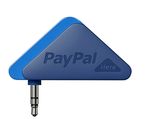
We will soon live in a world without payments.
As retailers integrate more of the financial transaction
into their trade processes, the more we live in a world where payments become
increasingly irrelevant.
The ability to walk into a coffee shop and get that
cappuccino without scrambling for the change or haling a taxi and getting from
A to B without worrying about the cash, is a world where it is consuming that
is the key, not payments.
It is the reason why Apple iTunes turns over big business
and why an Amazon can build a oneclick de facto internet purchase standard.
A world where PayPal can be plugged into any checkout process,
but a world that will soon move beyond this.
Just as in olden days we used to stand in lines to get
tickets for transport, today we just whizz through the gates with an auto
top-up.
In other words, the debits and credits are taking place
around us, behind the scenery, and we just think about living and working and
shopping and consuming.
The only challenge to this world is how you keep managing
those debits and credits as you move around the world.
But you don’t even need to worry about that, as apps give
you real-time balances without even having to look them up.
Everything is about ease of process, lack of friction,
taking away the pain and making life simple.
Some banks get this (Barclays with Pingit,
Garanti Bank with mobile Facebook banking)
whist most are just becoming aware of the trend. In the meantime, those who have got the trend
are making a mint as rapid growth start-ups.
The rock star of these start-ups is obviously Square and,
just as Jack Dorsey’s other business Twitter is IPO’d for around $18 billion,
Square is doing the same.
Square is a four year old powerhouse of payments in the US
of A, and muscled its way to a $3.2 billion valuation last year. If it IPOs next year, some are already estimating
a valuation over $10 billion. Why?
Why would it have such a valuation when it is not unique or
alone in its space, with so many other companies competing out there such as iZettle,
Payleven, Sumup, mpowa … and PayPal of course.
Well, maybe the valuation would be justified because Square’s
unique attribute is practical innovation.
As PayPal introduced a triangle to compete with Square, PayPal Here ...

... Square came up with Square
Card Case, a mobile wallet to allow in-app payments with retailers.
As PayPal introduced the Check-in app to emulate the Card
Case, Square came up with offering free email payments to anyone, anywhere, just
by cc’ing cash@square.com.
If PayPal find it hard to keep up with the upstart, gawd
knows what banks will do when the likes of Square move into the core domain of
transaction processing … as if they ever would!
Chris M Skinner
Chris Skinner is best known as an independent commentator on the financial markets through his blog, TheFinanser.com, as author of the bestselling book Digital Bank, and Chair of the European networking forum the Financial Services Club. He has been voted one of the most influential people in banking by The Financial Brand (as well as one of the best blogs), a FinTech Titan (Next Bank), one of the Fintech Leaders you need to follow (City AM, Deluxe and Jax Finance), as well as one of the Top 40 most influential people in financial technology by the Wall Street Journal's Financial News. To learn more click here...

